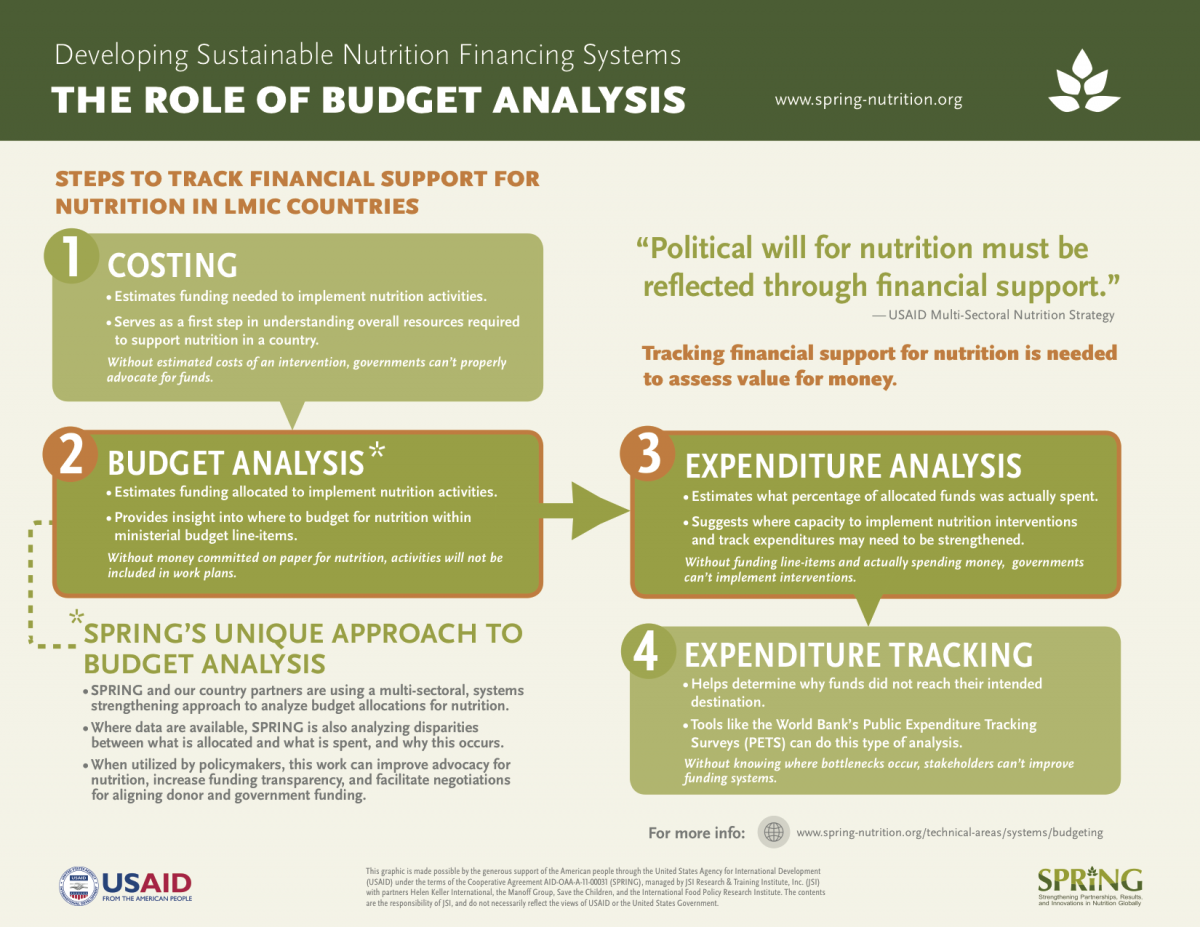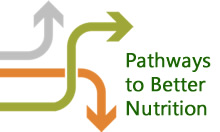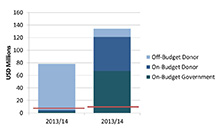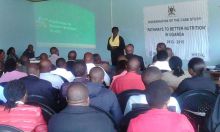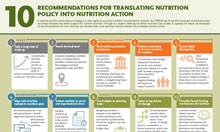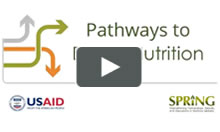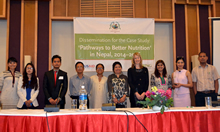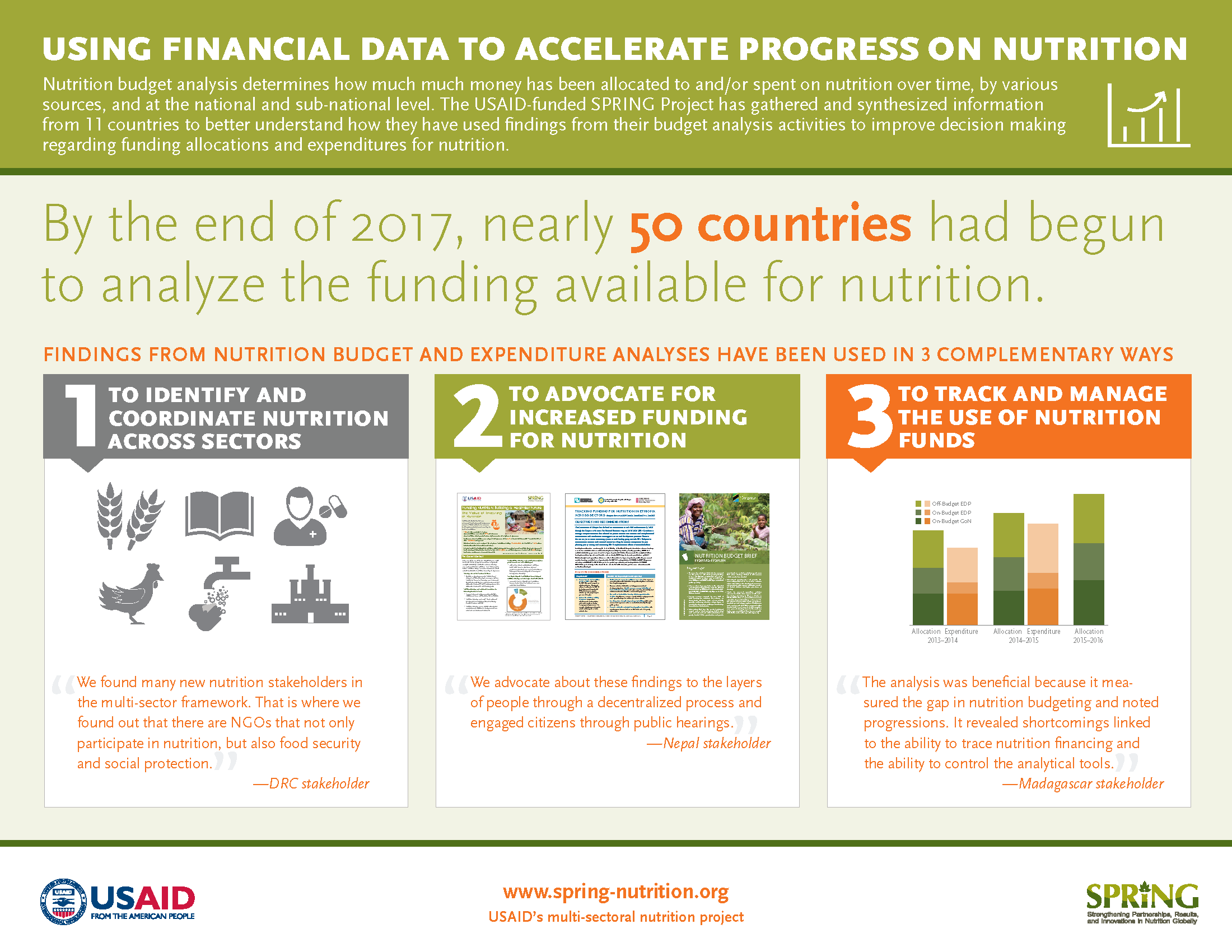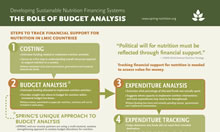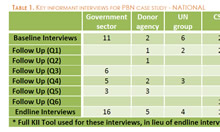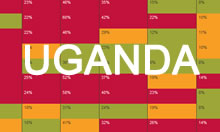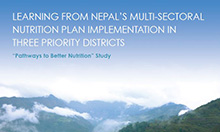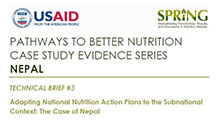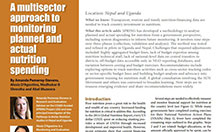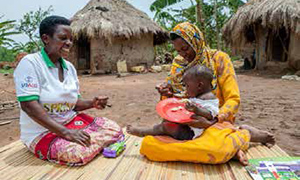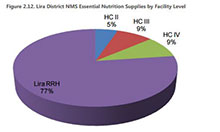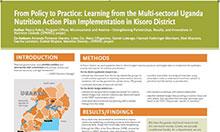SPRING recognizes the important role adequate financing plays in any effort to improve nutrition at scale. In its recently released Nutrition Strategy, USAID highlights the importance of financial systems, stating that political will for nutrition must be reflected through financial support, at both the national and sub-national levels.
Tracking financing support requires several steps: costing a national nutrition plan provides estimates of the funding needed to implement nutrition activities; analyzing current budgets (government and donor) creates estimates of funding allocated to implement nutrition activities; analyzing expenditures reveals what percent of allocated funds were spent; and tracking expenditures helps determine why funds did not reach their intended destination.
Maximizing the Quality of Scaling up Nutrition Programmes Framework (MQSUN), UNICEF, the World Bank, and others have completed a number of nutrition costing activities. Costing, however, is only half of the picture: stakeholders need to know whether or not sufficient funding is being channeled to nutrition to meet the estimated costs.
SPRING focuses on the second step—estimating what funding is allocated to implement nutrition activities—and, to the extent that there are available data, how much of that funding was spent. This is what SPRING means by "budget analysis." The resulting information can improve advocacy for nutrition funding, increase funding transparency, and facilitate negotiations for donor funding.
Building from the Scaling Up Nutrition (SUN) movement's "three-step" methodology, we have worked with stakeholders in Uganda and Nepal to identify nutrition funding from various sources and across sectors. Complementing other efforts to identify and track nutrition spending, we have developed a methodology for this work that emphasizes the multisectoral nature of nutrition and encourages local ownership of the process through technical assistance and provision of tools to country-level policymakers.
Download "Funding the Cause" (PDF, 2.4 MB), a presentation on this subject given at the 2015 IHEA Conference.
